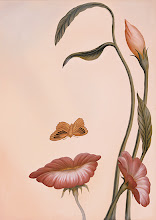Two Australian scientists who upset medical dogma by discovering a bacterium that causes stomach inflammation, ulcers and cancer won the 2005 Nobel Prize for Physiology or Medicine. The findings by the Australians in the early 1980's went so against medical thinking, which held that psychological stress caused stomach and duodenal ulcers, that it took many more years for an entrenched medical profession to accept it.
In the early 1980's, Dr. Warren noted the bacterium in the lower part of the stomach in about half of the patients who had biopsies. He made a crucial observation that signs of inflammation were always present in the surface lining of the stomach near where he observed the bacterium.
Dr. Marshall joined Dr. Warren in studying biopsies from a series of patients. After several attempts, Dr. Marshall succeeded in growing a bacterium that was unknown then; he named it Campylobacter pyloridis, believing that it was a member of the Campylobacter family. (It was later found to be a member of the Helicobacter family and renamed H. pylori.)
Still, many doctors were unconvinced by the findings, a point recognized by the Nobel committee, which said the award went to Dr. Marshall and Dr. Warren "who with tenacity and a prepared mind challenged prevailing dogmas."
Dr. Marshall carried on a medical tradition in experimenting on himself to test his and Dr. Warren's theory and to show that Helicobacter was the primary cause of gastritis, not a secondary invader.
In earlier interviews, Dr. Marshall described how at age 32, he swallowed a gastroscope tube to allow another doctor to look at his stomach and take several biopsies. These procedures and examinations were needed to document that Dr. Marshall had no H. pylori in his stomach and did not suffer from gastritis or another abnormality.
Dr. Marshall waited 10 days for the areas that had been biopsied to heal and then swallowed a pure culture of H. pylori. A week later, he had an unusual sensation of fullness after eating supper and felt ill. Friends told him that his breath was "putrid."
Ten days after the onset of symptoms, Dr. Marshall underwent the first of an additional three gastroscopies. Biopsies obtained through them showed that he had developed gastritis or inflammation of the stomach, but he did not continue the experiment long enough to develop an ulcer. His symptoms quickly disappeared after treatment.
Source:http://www.nytimes.com/2005/10/04/science/04nobe.html?pagewanted=2
Monday, April 12, 2010
Subscribe to:
Post Comments (Atom)


No comments:
Post a Comment